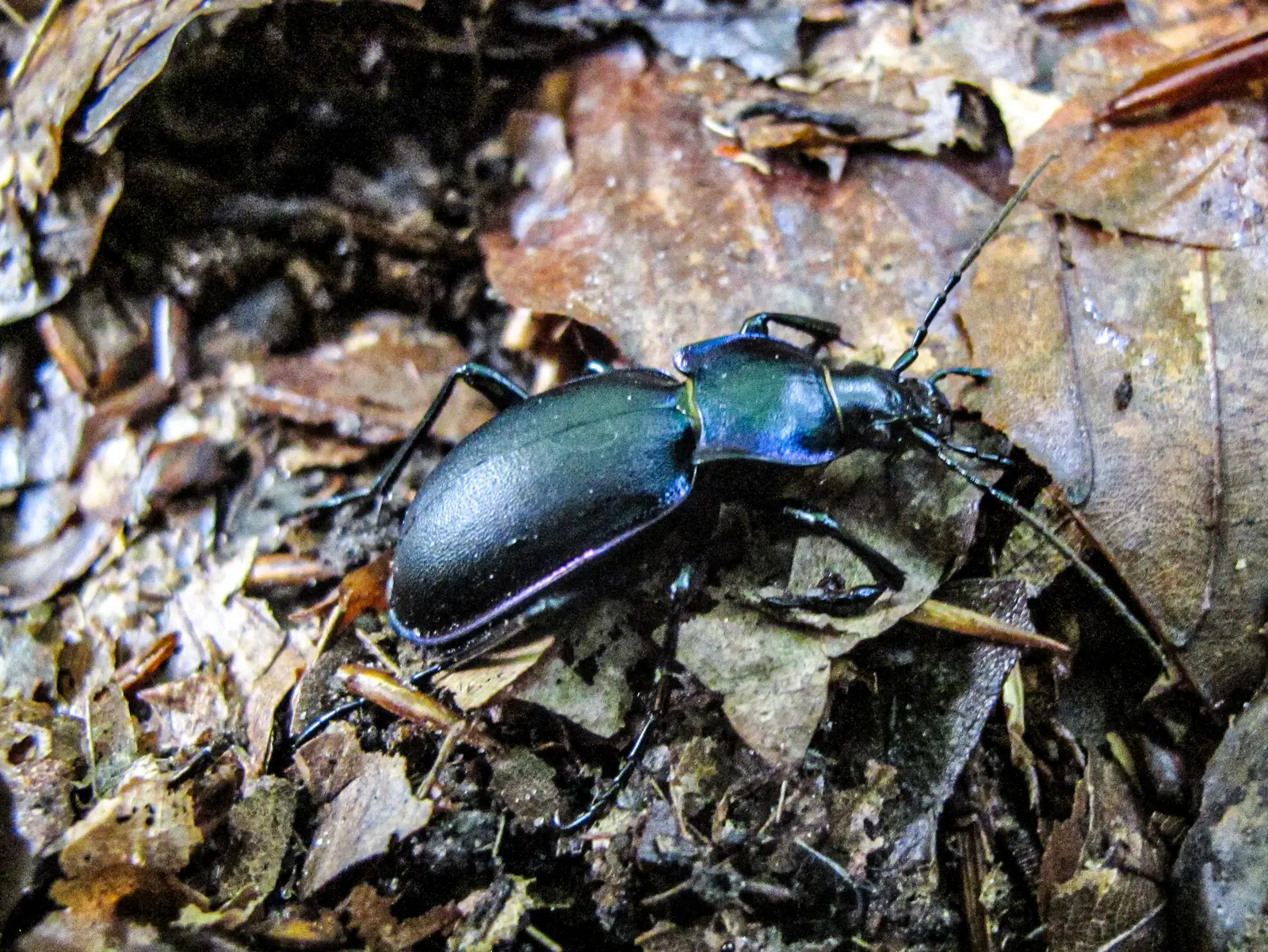Insect declines in old beech forests: Cause drought periods
A new study by Prof Dr Andreas Linde and Fabio Weiß from the Eberswalde University for Sustainable Development (HNEE) has documented the effects of drought on carabid beetles in eleven old beech forests in Brandenburg and Mecklenburg-Western Pomerania. Both the number and the total biomass fell by between 51 per cent and 65 per cent on average in the region. A study published by the two researchers at the beginning of the year already showed a close connection between the recent periods of drought (2018 to 2020) and declines in carabid beetles in a forest area near Eberswalde.

The areas investigated in the new study include several strictly protected, semi-natural beech forest sites in the core zones of the Müritz National Park and the Schorfheide-Chorin Biosphere Reserve, including two UNESCO World Heritage sites. Data from carabid beetle surveys from 1999 to 2001 and 2020 to 2022 were compared in terms of the number of individuals, total biomass, diversity and species characteristics. As predators, carabid beetles are good indicators of the status of other arthropods (arthropods) in forest soils.
The results show that both the number of carabid beetles and their total biomass decreased on all plots during the comparison period (on regional average by 51% and 65% respectively). Larger and non-winged carabid beetle species were disproportionately affected by declines. In contrast, there were no discernible changes in the diversity of carabid beetle communities. The intensity of the declines varied greatly between the individual sites. However, differences could not be explained by the protection status of the forest areas - strictly protected forest areas were just as strongly affected. Rather, a correlation was found between the proportion of forest areas in the surrounding landscape and the intensity of the declines - in densely forested areas, the declines in insects were somewhat lower. The current results confirm the findings of the previous study and show that the recent droughts have led to a massive decline in carabid beetle populations in forested areas at a regional level. Strictly protected, semi-natural forests were also affected by this consequence of climate change. Future nature conservation planning and measures to protect insects should therefore take greater account of landscape conditions and potential exposure to extreme weather conditions.
Fabio Weiß researched the long-term development of forest insects in Germany as part of his doctorate at the Eberswalde University for Sustainable Development and the Leuphana University of Lüneburg. He now works at the Cawthron Institute in Nelson (New Zealand). "It is alarming to see that even some of the oldest and most valuable beech forests in Germany in terms of nature conservation are affected by insect declines. These results in no way call into question the successes of nature conservation to date, but they do show that we need to adapt to the consequences of climate change here too."
Prof Dr Andreas Linde is Professor of Applied Ecology and Zoology at the Eberswalde University for Sustainable Development. As part of his teaching activities, he has been collecting insect data in northern Brandenburg since 1995. "Unfortunately, the results of our research on insect decline have also been confirmed at a larger, regional level. The decline in carabid beetles that we have identified is probably just the tip of the iceberg - other important ground-living arthropods are also likely to be affected."
Background information:
"Long-term drought triggers severe declines in carabid beetles in a temperate forest"
Landscape Ecology (peer-reviewed, open access) has been one of the leading scientific journals in the field of landscape ecology since 1987. Landscape Ecology is one of the leading scientific journals in the field of landscape ecology and publishes studies from basic and applied science that deal with the ecological understanding of spatial heterogeneity.
Note on image material
The photos available here may be used in the context of reporting. Please note the copyright notice © HNEE / Fabio Weiß